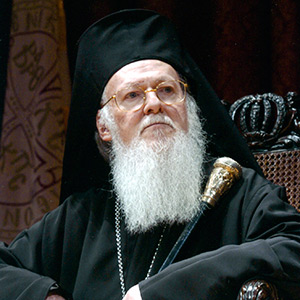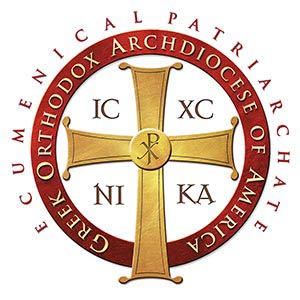Nota Bene!
*Paraclesis Friday 8/9 at 6:00 pm. *The Paraclesis is a service of supplication for the living, asking the Theotokos to intercede for us in our necessity.
*Feast of the Dormition (Assumption) of the Virgin Mary. This is the Parish's Name Day. We will have Great Vespers on Wednesday 8/14 at 6:00 pm. At this service, we will have an Artoklasia (blessing of 5 loaves of bread, wheat, wine, and oil). Also, we will have a procession with the Epitaphios of Panagia and chant her lamentations before her tomb. The following day, 8/15, we will have Orthros at 9:00 am and Divine Liturgy at 10:00 am.
*Parish Council meeting this Thursday (8/15) at 6:30 pm.
***PARISH PICNIC*** The parish picnic will be on Sunday, September 15th, at Washington Park after Church (noonish). Please be sure to invite your friends and family who helped at the festival, but may not be on our email list. There is no charge to attend the picnic.
***New Parish Google Calendar*** Please see our google calendar on the website (http://agoc.ut.goarch.org/parish-calendar/). You can subscribe to it through google calendar and never miss an update! We will also be publishing or linking to the calendar on the parish facebook page.
*Festival Leftover Items for Sale. Please see Pam Cha if you're interested in purchasing something.
*Bible Study will resume after Labor Day.
Welcome Visitors!
We are delighted to have visitors worship with us, and we pray that you will be blessed through your participation with us. In the Orthodox Church, the reception of Holy Communion is a mark of membership in the Church. Only those who have been united to the Orthodox Church through Baptism or Chrismation, and have prepared themselves through regular Confession (available anytime by appointment), prayer and fasting are permitted to partake of Holy Communion. We encourage visitors to participate in our prayers and hymns and to approach at the end of the Divine Liturgy to receive the "Antidoron," the blessed bread that is distributed at the very end of the Liturgy. This is not Holy Communion, but is a token of fellowship "...instead of the Gifts." Literature about the Orthodox faith and this parish can be found in the Narthex (vestibule). Please feel free to ask questions before or after the service, as well as join us downstairs for coffee fellowship immediately following the Divine Liturgy.
With Paternal Blessings in Christ,
+Fr. Seraphim

 Ecumenical Patriarch Bartholomew expresses his disgust and outrage at the murderous attack in El Paso, Texas, USA, in which twenty of our fellow citizens were killed and twenty-six others were injured, as well as the bloodshed in Dayton, Ohio, in which several of our fellow citizens were reportedly killed and injured.
Ecumenical Patriarch Bartholomew expresses his disgust and outrage at the murderous attack in El Paso, Texas, USA, in which twenty of our fellow citizens were killed and twenty-six others were injured, as well as the bloodshed in Dayton, Ohio, in which several of our fellow citizens were reportedly killed and injured.
 The Greek Orthodox Archdiocese of America is pleased to announce that the audit of the financial statements for the year ended December 31, 2018 has been completed. (See financial statements here). The completion of these financial statements confirms that progress in financial accountability is improving as this is the earliest after a year end in over 15 years that audited financial statements have been made available.
The Greek Orthodox Archdiocese of America is pleased to announce that the audit of the financial statements for the year ended December 31, 2018 has been completed. (See financial statements here). The completion of these financial statements confirms that progress in financial accountability is improving as this is the earliest after a year end in over 15 years that audited financial statements have been made available.
 NEW YORK – The Department of Youth and Young Adult Ministries of the Greek Orthodox Archdiocese of America (Y2AM) released a new episode of “Be the Bee” featuring His Eminence Archbishop Elpidophoros of America.
NEW YORK – The Department of Youth and Young Adult Ministries of the Greek Orthodox Archdiocese of America (Y2AM) released a new episode of “Be the Bee” featuring His Eminence Archbishop Elpidophoros of America.
 NEW YORK – His Eminence Archbishop Elpidophoros wishing to further promote the value and importance of monasticism in our Οrthodox tradition and the spiritual life of the faithful, decided to convene a Monastic Assembly, on September 21-22, 2019 in the Holy Monastery of Saint Nektarios, in Roscoe, NY.
NEW YORK – His Eminence Archbishop Elpidophoros wishing to further promote the value and importance of monasticism in our Οrthodox tradition and the spiritual life of the faithful, decided to convene a Monastic Assembly, on September 21-22, 2019 in the Holy Monastery of Saint Nektarios, in Roscoe, NY.





